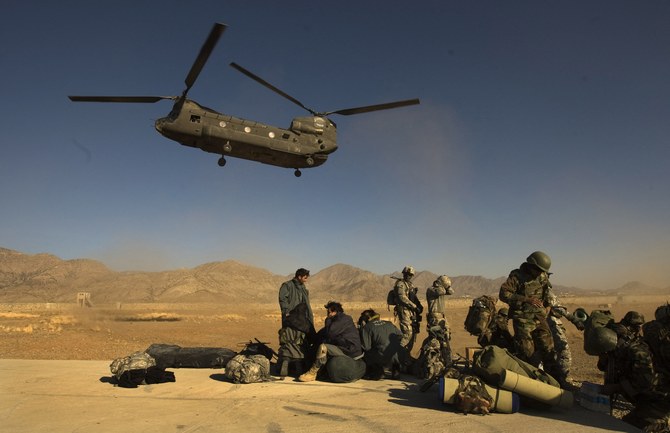ISLAMABAD: The administration of President Joe Biden has told lawmakers the US was close to a formal agreement with Pakistan to use its airspace to conduct military and intelligence operations in Afghanistan, CNN reported on Saturday, quoting three sources familiar with the details of a classified briefing with members of Congress that took place on Friday morning.
The briefing comes as the White House tries to ensure it can carry out counterterrorism operations against Daesh militants and other adversaries now that there is no longer a US presence on the ground in Afghanistan for the first time in two decades after the NATO withdrawal in August.
The US military currently uses Pakistan’s airspace to reach Afghanistan as part of ongoing intelligence-gathering efforts, but there is no formal agreement in place to ensure continued access to a critical piece of airspace necessary for the US to reach Afghanistan.
The air corridor through Pakistan to Afghanistan may become even more critical if and when the US resumes flights into Kabul to fly out American citizens and others who remain in the country.
Pakistani Prime Minister Imran Khan has repeatedly said he would not allow the US to use its airspace to access Afghanistan.
“Pakistan has expressed a desire to sign a Memorandum of Understanding (MOU) in exchange for assistance with its own counterterrorism efforts and help in managing the relationship with India,” CNN reported, quoting one source. “But the negotiations are ongoing, another source said, and the terms of the agreement, which has not been finalized, could still change.”
A third source told CNN an agreement was discussed when US officials visited Pakistan, but it was not yet clear what Pakistan wanted or how much the US would be willing to give in return.
With no formal agreement currently in place, the US runs the risk of Pakistan refusing entry to US military aircraft and drones en route to Afghanistan.
A Pentagon spokesman said the Defense Department did not comment on closed briefings due to security classifications.
Currently, the US conducts its over-the-horizon operations from bases in the Middle East, forcing drones to fly from distant bases, such as those in Qatar and the United Arab Emirates, around Iran and through Pakistani air space before reaching Afghanistan. The lengthy flight limits the time drones can loiter over Afghanistan gathering intelligence, and the Biden administration has been looking for closer, more effective options.
President Joe Biden said in July, weeks before the evacuation from Afghanistan and the fall of Kabul to the Taliban, that the US would maintain its ability to operate in the country, even if US troops were no longer on the ground.
“We are developing a counterterrorism over-the-horizon capability that will allow us to keep our eyes firmly fixed on any direct threats to the United States in the region, and act quickly and decisively if needed,” he said on July 8.
















